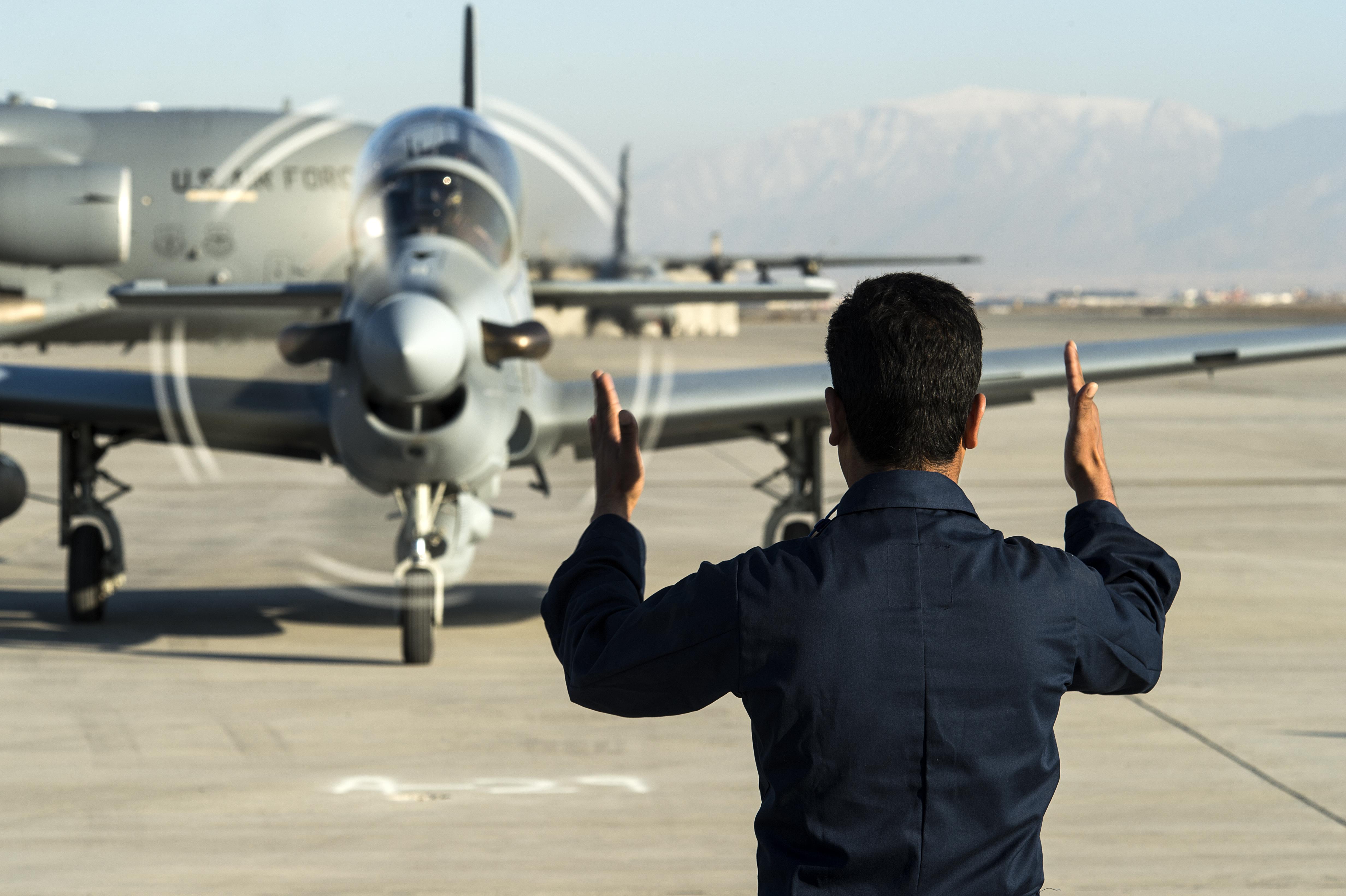By Cheryl Pellerin DoD News, Defense Media Activity
WASHINGTON, January 19, 2016 — Last year was the first year
the Afghan national army was on its own in the fight against the Taliban, and
the results were mixed -- but the soldiers have improved in several areas, a
spokesman for the Resolute Support mission said today.
U.S. Army Brig. Gen. Wilson A. Shoffner, the mission's
deputy chief of staff for communication, briefed Pentagon reporters live via
teleconference from Kabul.
Shoffner said the role of the U.S.-led NATO Resolute Support
mission, which began Jan. 1, 2015, is to train, advise and assist at the
ministerial level and at the level of the Afghan national army. Shoffner said
the Afghan soldiers did fairly well when they conducted deliberate, planned
operations.
Getting Better
An important thing, the general said, “is that they applied
and learned lessons from one operation to the next. They got better. And the
things they struggled with in one operation, we saw improvements on in the next
one, particularly in their ability to integrate their air and … their
artillery.”
They had more trouble in response to crisis situations,
Shoffner said.
“It required more time to get forces in position, and then
it required more time to stabilize the situation,” he added. “They did get
somewhat better at crisis response, but that remains one of their weaknesses
and one of the areas they're going to have to continue to focus on into 2016.”
The soldiers also fought well during the year, he said,
noting that the Taliban made temporary gains but could not hold ground or
govern.
“The best example of that is the fact that the Afghan
security forces retook the city of Kunduz, which is a city of over 300,000
people, in just seven days. This was a crisis response … but they did fairly
well. And seven days to secure a city that size is not insignificant,” the
general said.
Reset and Refit
The fighting season in Afghanistan used to begin in May and
end around November, but now fighting takes place year-round, Shoffner said,
and the operational tempo has been so high that the army needs time to reset
and refit its force.
The general characterized the Afghanistan security situation
as manageable in the north, east and west.
“There are [still] challenges in the east, particularly in
Nangarhar. The south, particularly in Helmand, remains contested, but we
expected … the Taliban to hold on to what has been traditionally the heart of
their support base,” he said.
Shoffner said one major effort over the winter will be to
rebuild the Afghan national army's 215 Corps, which has responsibility for
Helmand.
Ready for 2016
This year the Afghan security forces must do several things
to be effective, Shoffner said. They have to implement a force readiness cycle
and reduce the number of checkpoints in the country, moving to strong points
that are well defended and that give them more available combat power.
They also have to make tough leadership choices, the general
said.
“They've got some leaders that need to be replaced, [and]
they've got some leaders that are corrupt that need to go. The Afghan security
forces are making these changes,” Shoffner said.
In the 215 Corps, for example, the corps commander, two
brigade commanders and several key staff members have been replaced.
The Afghan army also will focus on recruiting, given its
shortfall of about 25,000 troops, Shoffner said, and on building capacity.
Building Capacity
Last week the first four of 20 A-29 Super Tucano
close-air-support aircraft arrived and will go into service around April, the
general said. The soldiers also for the first time used the MD-530 light-reconnaissance
helicopter “with great effect over the fall,” he added.
Afghanistan’s special forces are increasingly capable,
Shoffner said, noting the assessment is “that they’re the best in the region.”
On the conventional side, the army also has seen successes, he said.
Beyond the improvements of the Afghanistan security forces,
Shoffner said a second round of quadrilateral peace talks are occurring in
Kabul this week. Participants include officials from the Afghan and Pakistani
governments, with the United States and China observing.
“This is an important step,” the general observed.
Peace Talks
Yesterday, he said, the participants agreed on a framework
for future peace talks with the Taliban and committed to putting that in
writing. They also agreed to meet again on Feb. 6 in Islamabad.
“We continue to support an Afghan-led and an Afghan-owned
peace process as the surest path to peace here in Afghanistan,” the general
said, “and we support any violent extremist organization laying down their
weapons and joining the peace process led by the Afghan government.”
At the NATO foreign ministerial meeting in December, 47
nations pledged their long-term support to Afghanistan.
“We weren't sure what the results of that meeting would be,
but 47 nations are actually more than we have in the coalition now,” Shoffner
said.
Regional Approach
This year, he said, the coalition expects these commitments
to be solidified during the July Warsaw Conference in Poland. In October a
conference in Brussels will focus on development assistance for Afghanistan.
“The long-term approach here, President [Ashraf] Ghani has
said, is going to take a partnership with the international community,"
Shoffner said. “President Ghani has said repeatedly that he's fighting
insurgents from other nations in the region in Afghanistan, and it's going to
take a regional approach to combat that."







No comments:
Post a Comment